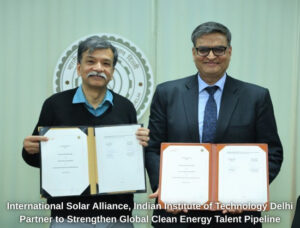Why Do Oil Spills Happen? Unraveling the Causes and Consequences

Oil spills are environmental disasters that capture the world’s attention when they occur. Images of oil-soaked wildlife, polluted shorelines, and the long-term ecological damage leave a lasting impact. But what leads to these catastrophic events, and why do oil spills happen? In this comprehensive exploration, we’ll delve into the complex web of causes behind oil spills, the industries involved, and the devastating consequences that follow.
Causes behind oil spills
1. Human Error and Negligence
One of the most common causes of oil spills is human error and negligence. Accidents happen, but in industries that handle vast quantities of oil, even a small oversight can lead to catastrophe. Examples of human-related causes include:
Tanker Collisions
Large oil tankers navigating narrow waterways or congested ports can collide with other vessels, damaging their hulls and releasing oil.
Pipeline Leaks
Poor maintenance, corrosion, or equipment failure can lead to pipeline leaks, spilling oil into the environment.
Offshore Drilling Mishaps
The complex operations of offshore drilling rigs pose significant risks. Blowouts, equipment failures, and procedural errors can result in massive oil spills.
2. Equipment Failures
Oil extraction and transportation rely on complex machinery and technology. When this equipment fails or malfunctions, it can lead to oil spills. Examples include:
Wellhead Failures
In the oil drilling industry, a failure in the wellhead equipment can result in the uncontrolled release of oil and gas.
Pipeline Ruptures
Aging pipelines or those not properly maintained can rupture, releasing oil into the surrounding environment.
3. Natural Disasters
Nature plays a significant role in causing oil spills. Hurricanes, tsunamis, earthquakes, and other natural disasters can damage oil infrastructure and lead to spills. For example:
Hurricane Damage
Powerful hurricanes can damage offshore drilling platforms, causing oil leaks.
Underwater Landslides
Seismic activity or landslides on the ocean floor can disrupt pipelines and release oil.
4. Sabotage and Vandalism
In some cases, oil spills occur due to acts of sabotage, vandalism, or criminal activity. Individuals or groups may intentionally damage oil infrastructure, leading to leaks and spills.
5. Inadequate Regulations and Oversight
Inadequate regulations and lax oversight of oil industry operations can contribute to spills. Insufficient enforcement of safety measures and environmental standards can lead to shortcuts that increase the risk of accidents.
Consequences of Oil Spills
The consequences of oil spills are far-reaching and devastating:
1. Environmental Impact
Oil spills can harm marine life, birds, and coastal ecosystems. Oil-coated animals may suffer from health issues, and long-term damage to the food chain can occur.

Oil spill in Mauritius leaving behind a massive environmental disaster, image source: Unsplash
2. Economic Costs
Clean-up efforts, legal liabilities, and loss of revenue for affected industries can lead to significant economic costs.
3. Health Hazards
Communities near oil spill sites may experience health problems due to exposure to toxic chemicals in the oil.
4. Loss of Biodiversity
Oil spills can lead to the loss of species and habitats, affecting biodiversity and ecosystem health.
5. Marine and Coastal Damage
Oil can persist in the environment for years, damaging coral reefs, mangroves, and other sensitive coastal habitats.
Prevention and Mitigation
While oil spills are devastating, prevention and mitigation efforts are ongoing. These include:
Improved Safety Measures
The oil industry continually works to enhance safety protocols, technology, and equipment to minimize the risk of spills.
Regulations and Enforcement
Governments and regulatory bodies enforce strict regulations to hold oil companies accountable for safety and environmental compliance.
Response Plans
Oil companies have spill response plans in place, including equipment and trained personnel to contain and clean up spills quickly.
Environmental Remediation
Efforts are made to restore affected ecosystems and support the recovery of wildlife populations.
The Ongoing Battle Against Oil Spills: Towards a Safer Future
As the world grapples with the complex challenges of oil spills, ongoing efforts are crucial in preventing, responding to, and mitigating the devastating consequences of these environmental disasters. Here, we delve deeper into the strategies and innovations that offer hope for a safer, cleaner future.
1. Advances in Oil Spill Response Technology
Responding swiftly and effectively to oil spills is essential in minimizing environmental damage. Over the years, significant advancements in spill response technology have emerged:
Booms and Skimmers
Specialized equipment such as oil containment booms and skimmers can help corral and remove spilled oil from the water’s surface.
Chemical Dispersants
Chemical dispersants are used to break down and disperse spilled oil, reducing its impact on the environment. However, their use is subject to careful consideration, as they can also have ecological consequences.
Remote Sensing and Monitoring
Satellite imagery and aerial drones equipped with sensors can provide real-time data on the extent and movement of oil spills, enabling more precise response efforts.
Bioremediation
Natural processes and microorganisms can be harnessed to break down and degrade oil, accelerating the restoration of affected ecosystems.
2. Improved Safety and Prevention Measures
Preventing oil spills starts with rigorous safety measures and industry standards:
Safety Training
Oil industry workers receive extensive training to prevent accidents and respond effectively in case of emergencies.
Upgraded Infrastructure
Regular maintenance, inspections, and upgrades of equipment and infrastructure are crucial in reducing the risk of failures.
Stricter Regulations
Governments and regulatory bodies continually review and strengthen regulations governing oil industry practices to ensure safety and environmental protection.
Alternative Energy Sources
Investing in renewable and alternative energy sources reduces reliance on fossil fuels, diminishing the need for oil extraction and transportation.
3. International Cooperation
Oil spills often transcend national borders, necessitating international cooperation and response:
Global Agreements
International agreements, such as the MARPOL Convention, set guidelines and standards for preventing and responding to oil pollution from ships.
Cross-Border Collaboration
Countries and organizations collaborate to share expertise, resources, and technology for more effective spill response.

Exxon Valdez oil spill in Alaska, image source: Unsplash
4. Public Awareness and Advocacy
Raising public awareness about the consequences of oil spills and advocating for cleaner energy sources and environmentally responsible practices are vital components of the ongoing battle:
Educational Initiatives
Educational campaigns and programs inform the public about the importance of responsible oil use and conservation.
Environmental Activism
Environmental organizations and advocates work to hold oil companies accountable for their actions and push for stricter regulations and cleaner practices.
5. Research and Innovation
Continuous research and innovation are essential in finding new solutions to oil spill prevention and response:
Alternative Oil Transport
Research into safer methods of oil transportation, such as double-hulled tankers, can reduce the risk of spills.
Biodegradable Lubricants
Developing biodegradable lubricants and fluids can reduce the environmental impact of equipment failures.
Conclusion: A Collective Effort to Protect Our Planet
The battle against oil spills is far from over, but with ongoing efforts in prevention, response, and advocacy, we can strive for a safer, cleaner future. Recognizing the devastating consequences of oil spills on ecosystems, economies, and public health, individuals, governments, industries, and organizations must work together to minimize the risks and impacts of these environmental disasters.
Whether through stricter regulations, innovative technologies, or a global commitment to cleaner energy sources, our collective efforts can help safeguard our planet for generations to come.







